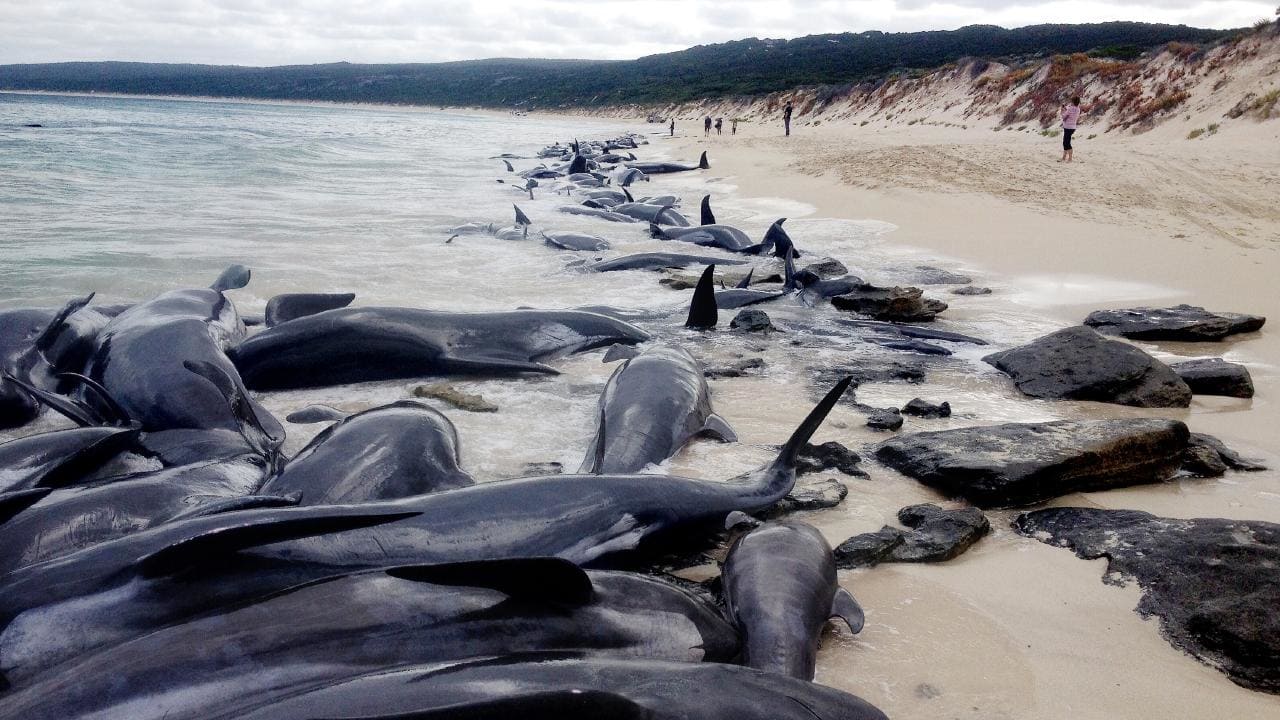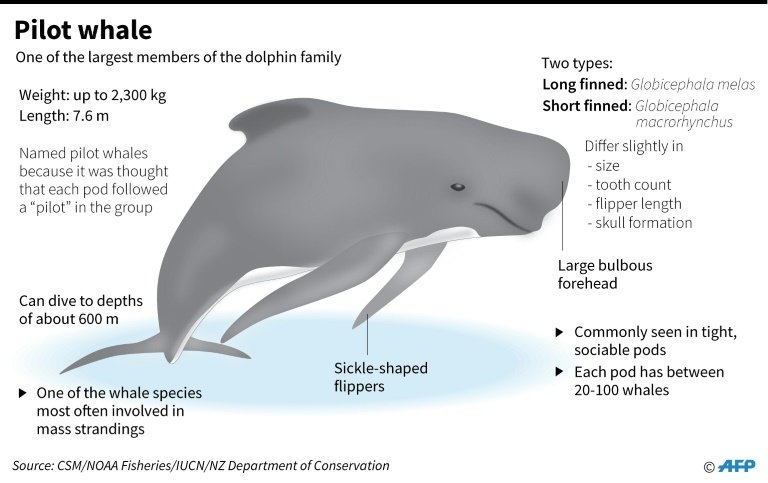 The sight is enough to shock anyone who has seen it. Dozens of whales lie unconscious on the shore of a picturesque beach as their fins are slowly dried out by the searing sun.
The sight is enough to shock anyone who has seen it. Dozens of whales lie unconscious on the shore of a picturesque beach as their fins are slowly dried out by the searing sun.
This describes the recent tragedy that left 51 pilot whales lifeless and stranded on New Zealand's Chatham Islands.
However, this was not the only incident. Just a few days earlier, on November 26th, a hiker on New Zealand's remote Rakiura/Stewart Island spotted 145 pilot whales -- the fourth of five strandings that week.
These strandings have become a focal point of study because they involve a massive amount of whales, and scientists are trying to understand possible reasons.
Could They Be Sick Or Disoriented?
 One likely cause is that the whales might have washed up due to injuries and illnesses such as malnutrition, pneumonia, or exhaustion.
One likely cause is that the whales might have washed up due to injuries and illnesses such as malnutrition, pneumonia, or exhaustion.
However, scientists say that this reason would primarily apply to the stranding of one whale, not larger groups like the ones that were found. There have been whale strandings where all the whales were healthy.
Another possibility could be disorientation at sea. When whales travel outside of their usual habitat, it is possible that they find themselves in unknown geographic locations, which leads them to panic and accidentally venture into shallow waters and land on a beach. For example, many whale strandings have occurred at the tip of New Zealand, a peninsula where waters are shallow and where they may be trapped by the low tide.
Furthermore, an important form of communication for whales is echolocation, and this can be disrupted in shallow waters. Scientists describe echolocation in shallow waters with high levels of silt and mud as “trying to walk through a forest on a foggy day”.
A Misguided Leader?

Scientists speculate that it might have to do with the whale's herd behavior. You see, whales-- especially pilot whales tend to stick together as a group with a dominant mammal leading the pod.
One theory is that when the leader gets sick or disoriented and heads into shallow waters, the group follows the distress signals, leading to mass beaching. Or perhaps the leader may come too close to the shore while following a school of fish or while escaping predators such as killer whales.
There are other theories such as warming ocean waters that cause marine prey to migrate and whales to follow them, algal blooms that cause poisonous red tides, and noise pollution from large shipping vessels and underwater exercises by the Navy that disrupts communication within a whale pod.
Mass strandings such as these have been recorded in history. Pliny the Elder, a Roman Historian in the first century A.D, recorded that the "receding tide had left behind 300 beasts of marvelous size" in the south of France. However, with so many species of whales on the endangered list, it is sad to see these huge mammals meet their end on our beaches.
Sources: BBC, Newsweek, NBC, LiveScience











